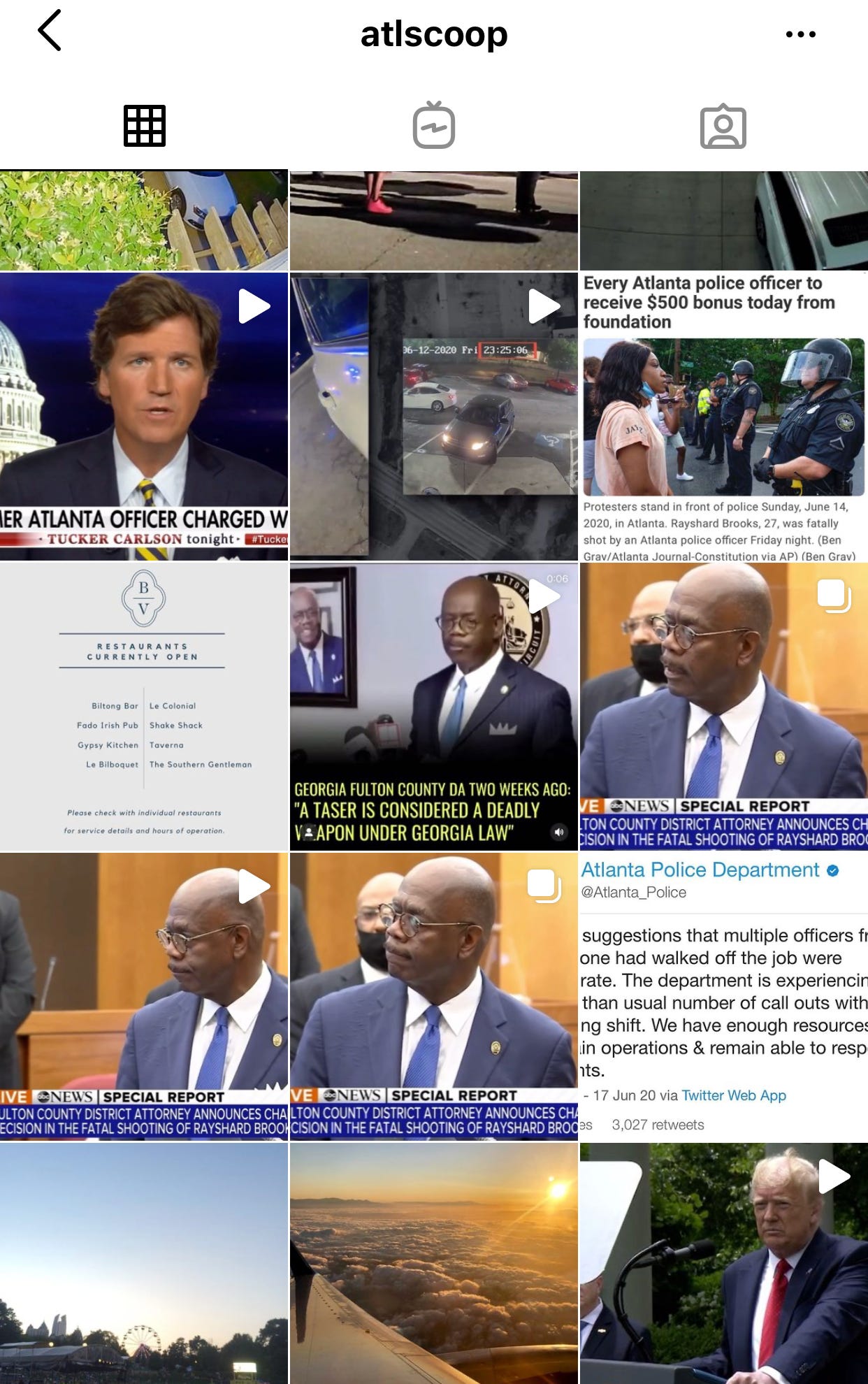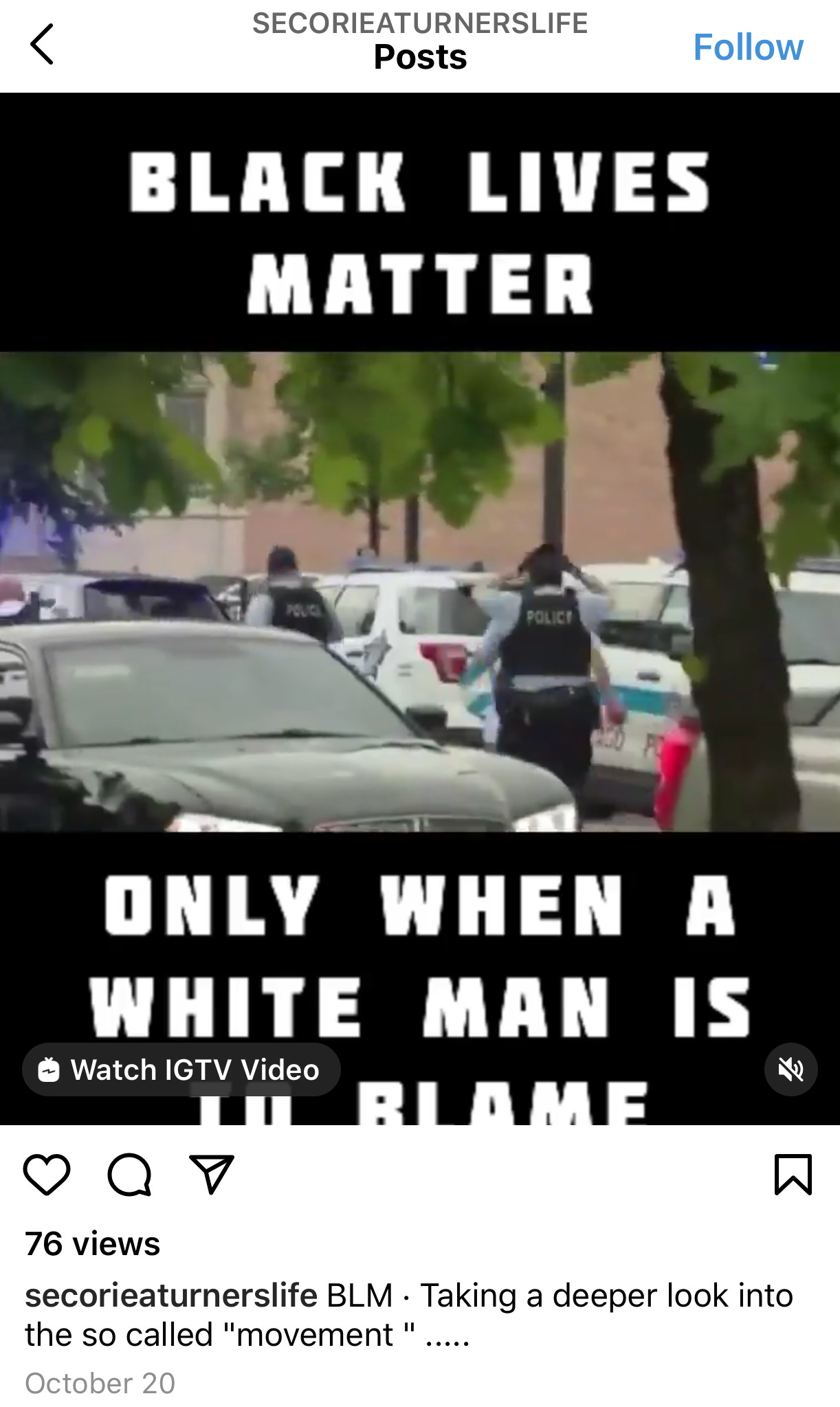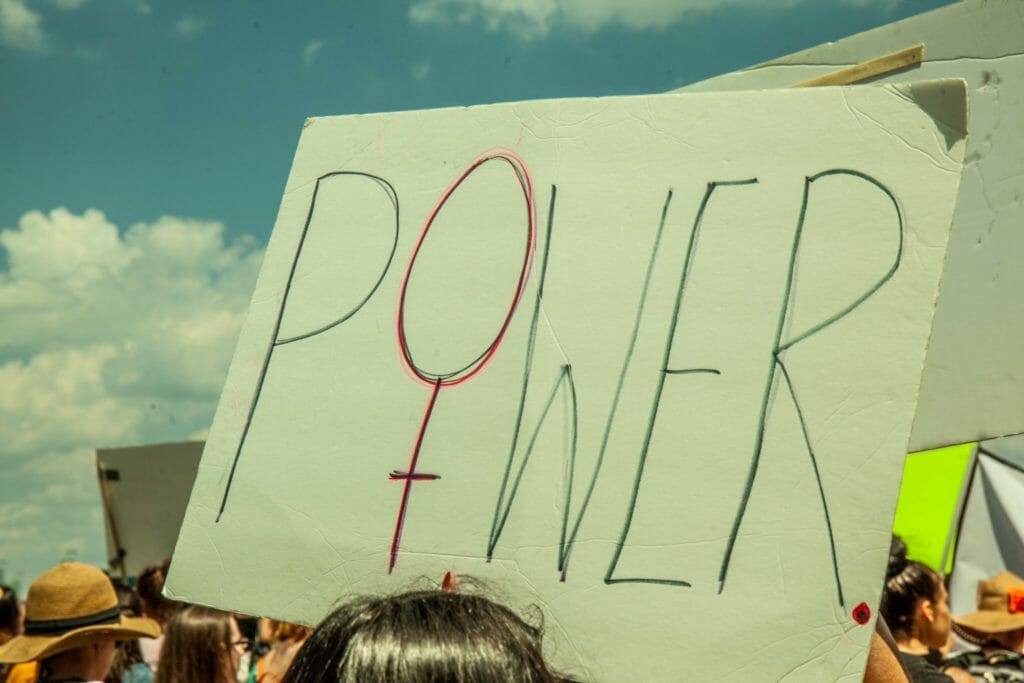The machine that brought us the city too busy too hate has no response for this
King Williams is a documentary filmmaker, journalist, podcast host, and author based in Atlanta. This piece was originally published in his newsletter, which covers the hidden connections of Atlanta to everything else. This piece has been republished here with his permission. Williams is also one-third of The Mainline\’s weekly Atlanta politics briefing podcast.
In the last twelve months, Atlanta has undergone one of the most chaotic political and social changes it\’s had in decades. The Atlanta way of doing things in 2020 saw the most fraught testing of the fragility of the bonds between the Black and white elites, plus business interests in the city. This trifecta since the aftermath of the 1906 Atlanta Race Riot has been able to typically deal with racial or political strife in more private terms, maintaining the image of the city. But due to the combination of the increasing inequality, gentrification, and a decades-in-the-making demographic shift, the Atlanta of old has met the Atlanta of new. Add in the long-gestating backlash regarding race relations, police brutality, and social justice, Atlanta finally saw that its moniker as ‘the city too busy to hate’ be tested to its limits.
While the battle seemed to be won in the streets last summer, something else online was happening entirely. Within one year, the anti-Atlanta, anti-Black, and anti-Democratic political infrastructure are threatened to a point that the city may not be able to overcome. This is a result of Atlanta losing its carefully crafted, century-long media and public relations machine, which has been unraveled by bad actors on the internet.
I. The right-wing social media ecosystem is here in Atlanta
The 2020 Black Lives Matter protests were arguably the largest in U.S. history on both an overall participation rate and percentage of the population.

Despite the hard work of the international movement for Black Lives Matter against police brutality and violence last summer, the anti-Black Lives Matter movement was working harder. The greater adversarial group of white, Republican-adjacent, evangelical Christian, some Latinx populations, and conservative contrarians were harder at work (mostly online) to dismiss the lives of George Floyd, Breonna Taylor, and Ahmaud Arbery. This was in addition to discrediting the entire movement as well as its founders. And for the most part, it worked.

The post-George Floyd anti-BLM digital media campaigns helped sway the often white and conservative support it had immediately following Floyd\’s murder. Support surged June 2020, was abandoned by last December, and to near-full abandonment by June 2021, often combining online misinformation with promoting Black anti-Black agents or repurposing Black content—content which is for both expressing points of anti-BLM, but also able to be shared amongst a broader audience. This often comes within the built-in traditional (cable news, talk radio, op-Ed columns) and nontraditional conservative media ecosystems (social media, YouTube, podcasts, chat apps).
The anti-BLM movement requires scale and misinformation—the internet has both
The anti-BLM movement of the 2010s has often maintained itself within smaller communities online such as private Facebook groups and Reddit, or on the world’s larger amplification engine, Twitter. Due to the overwhelming volume of posts post-George Floyd, the pivot has been to recontextualize protests as violent and the movement as not credible. This isn’t new. The Civil Rights Movement of the 1950s and 60s and the subsequent Black Power Movement of the 1960s and 70s saw a similar movement towards recontextualizing organizers, messaging, and the movements as threats, specifically violent.
This includes rhetoric such as ‘crime is happening in Democratic cities’ while it’s happening everywhere; drawing false equivalencies, i.e. ‘The Democrats support ‘looting’; recontextualizing the BBB points of anti-police brutality protests, i.e. ‘what about Chicago?\’; purposely producing martyrs for personal gain, i.e. David Dorn; pursuing false victimhood (see: Andy Ngo); as well as amplifying leftist talking points, then twisting them for far-right gains (ex: defunding police).
Misinformation is the point
The anti-BLM movement of the 2010s is part of a broader historical conservative media ecosystem that encompasses the same traditional and non-traditional media outlets as the enemies these counter-movements rail against. The difference in this conservative media ecosystem is that it’s more fragmented, more hyper-partisan, and more extreme due to the fragmentation of the decentralized internet. The poster child of this movement has been psuedo-‘news’ outlets like that of Breitbart, a far-right publication that set the blueprint of how to distribute misinformation and white nationalism to a global audience. This is aided by the rise of social media platforms where an increasingly larger portion of Americans get their news.

The Breitbarts of the world have paved the way for other publications such as The Daily Wire, The Daily Signal, The Post Millennial, The Daily Caller, Quillette, The Gateway Pundit, Project Veritas, The Washington Examiner, The Epoch Times, Infowars, Conservative Treehouse, Truthfeed, OutKick, and dozens more. This doesn’t include the widespread issue of actual fake news websites, propaganda accounts, and content farms, often operating in countries outside of the U.S. All of these organizations thrive on Facebook, where right-wing content dominates the news charts on the platform.
These campaigns of misinformation or division are often done anonymously through individuals using avatars, fake social media pages, misleading online ‘newspapers’, memes, gifs, hashtag hacking, deepfakes, re-edited videos, and of course, catfishing. The point is to cause confusion and then remove support for the underlying cause, followed by weaponizing that cause to reaffirm the status quo which is, by definition, classic conservatism and an adherence to the state, its values, institutions, and societal systems. Anything counter to this becomes a potential target of attack. Anonymity is the point here: it allows for the content creator to go as far as they want without personal acknowledgment, but most importantly, consequence.
II. ATLScoop and other, ‘crime porn’ accounts
The biggest and most influential account in Atlanta has been ATLScoop. ATLScoop is an Instagram account that was first created in April 2020.
But on June 3, 2020, the page began to pivot against the recent George Floyd protests that engulfed America beginning on May 25, reaching a boiling point of protests around the country within one week. In cities like Atlanta, this resulted in peaceful day-long protests that turned into vandalism at CNN Center as the sun went down on May 29. During that incident, much of the lower-level glass windows were smashed by protestors and a police vehicle was burned alongside the iconic CNN logo spray-painted with graffiti. From that moment, the ATLScoop account was reborn as a new anti-BLM/pro-Blue Lives Matter account and nothing has been the same since.
Instagram is the hotbed misinformation for Millennials
ATLScoop and other related accounts on Instagram have grown because the peer-to-peer social media networks enhance the trust of individuals over institutions, experience, and certifications. It’s important to note here that ATLScoop is not outright misinformation or disinformation, but is considered malinformation: information that is based in truth, but is meant to do harm. The harm in this case is directly related to current Atlanta mayor Keisha Lance Bottoms and the Black Lives Matter movement, while to also belittle initiatives such as defund the police and abolish the police.

The individual memes, photos, and videos allow for recontextualizing for a smaller subset of users while also avoiding the scrutiny typically associated with a healthy news ecosystem. The best recent example of Instagram’s propensity for misinformation and online extremism has been the rapid deterioration of trust in the CDC, local health organizations, and pharmaceutical manufacturers regarding both the COVID-19 spread and various vaccines.
It’s important that ATLScoop doesn’t fall into the fake news category, but is understood to be misleading. The events in question did happen, but the context and overall narrative presented by ATLScoop paint a wildly different interpretation of events. Accounts like ATLScoop build an atmosphere that Atlanta is out of control, on the level of a Hollywood movie like The Purge. The constant barrage of violent posts, guns, fistfights, drifting, break-ins, and after-hours loitering builds a faux reality that Atlanta is inherently out of control. This is amplified through the algorithms of Instagram which are a) not in chronological order, and b) reward engagement by pushing content that has been the most active to the forefront of followers or would-be followers.
ATLScoop is the MAGA-adjacent account that launched 1,000 ships and sank the career of KLB in the process
Over the next few months after its launch, the account remained, slowly picking up followers. By late November 2020, the account had less than 20,000 followers. What was noticeable about this account then and now is that it is believed by its followers to be the news, and specifically not mainstream news. This tactic of mainstream media is a common trope amongst conservative news provocatuers dating back to the 1940s, but grew in the 1950s and \’60s as backlash to the Civil Rights Movement. It became a defining tactic of former Vice President Spiro Agnew during the Nixon administration, cementing a long gestating period of anti-establishment rhetoric due to the coverage of southern whites during the Civil Rights Movement.
In the case of ATLscoop, the overwhelming majority of its content was a crime, specifically Black crime—a genre that Breitbart has perfected over the last decade. This is plausible since prior to a recent spat with several Black Atlantans, ATLScoop followed the account. Instead of providing the context of the crimes, ATLScoop uses a combination of user-submitted content, plus third-party crime apps like Citizen and burner accounts to attack critics in the comments. As a result, the account has produced an atmosphere of the everyday citizen being upset at crime.

The ATLScoop account notably did not have much news regarding the 2020 election, nothing on how to vote, or any coverage of the long lines of Black voters. This is odd considering what impact Georgia, specifically Atlanta, had on the outcome of both the general and runoff elections in the last cycle. When it did have content on the elections, it was that of Republicans Gov. Brian Kemp and Georgia Secretary of State Brad Raffesnperger. It\’s also worth noting the account lacked content for the January 6 insurrection at the U.S. Capitol.
The account started explicitly as an anti-BLM account, then cleaned up
What does exist on ATLScoop is a hodgepodge of videos of crime, often portrayed by young Black people, and often without any context (at least initially; many of the videos have been since had their texts edited). The initial verbiage and hashtags associated with the account were similar to those found from right-leaning social media posts. This includes memes initially used that mocked African Americans regarding the police, many posts related to portraying police in a positive light, several posts criticizing then-Fulton County District Attorney Paul Howard, and a now-deleted video from the page containing a portion of Fox News host Tucker Carlson blaming the recently murdered Rayshard Brooks for his own murder.

The curious case of Secoriea Turner burner accounts
Often in the early days of the ATLScoop account, the content displayed on the main profile page was not representative of the account today. The account also makes a point of using personal posts of recently gunned-down Atlanta youth on the page. These posts are often followed by a temporary posting of a GoFundMe fundraiser related to the family. This includes 8-year-old Secoriea Turner, who was killed by gunfire near the Wendy’s on University Avenue where Rayshard Brooks was killed. In this particular case, the hashtag #justiceforsecoriea was used in several posts and is currently on the ATLScoop website.

In now-deleted posts, many of the early posts resurfaced anti-BLM memes and dismissive content. There are currently four accounts that exist, with the hashtag having over 1,500 people use the post, likely including people unaware of these alternative accounts, as well. This isn’t to say those connected to the family did not make the page; but considering the accounts went up nearly as soon as Turner was murdered and that the content of the page and the dialogue used are not typically associated with Black speech online, it seems something isn\’t matching up. There are currently four accounts on Instagram — @secoriealifematters, @secorieasworld, @ourangelsecoriea, and @secorieaturnerslifememorial — all of which have similar speech patterns and hashtags used, and all of which emerged after her death.
This also doesn’t include the burner accounts used by either the person managing the ATLScoop account or the support of it. There is Instagram user @amir770atl, an account which purposely goes out to attack critics of ATLScoop in the comments and on their own social pages, including yours truly. The account noticeably, at the time of this publication, has 14 posts, no followers, follows 200 accounts, and is private. The account uses a photo of a screenshot of a music video from German rapper Shindy as its profile picture, but is indicative of the often used anonymity tactics of trolls online. It\’s likely that a newer one will resurface soon.
III. The Black Mecca is being played by what is believed to be Black media
Blackfishing and Black Atlanta inadvertently pumped this account
The biggest irony in the rise of ATLScoop and subsequent accounts that have arisen over the last few months has been that the content was deliberately anti-Black, but spread virally because of Black people. This is a result of a decade-plus of content farms (ex: This is 50/WorldStarHipHop) and community aggregators (ex: The Shade Room/Baller Alert) that have become hubs of entertainment and news. Added in by the 2000s gossip and commentary cultures that have developed from the days of Myspace and Black Planet are behaviors that have since migrated to the platforms of Instagram, Facebook, Twitter, and YouTube.
#BlackTwitter and Black celebrity Instagram pages
Atlanta’s influence on culture has been well documented and its ability to make content go viral is well known. The combination of musicians, actors, politicians, entrepreneurs, other Black celebrities, and local celebrities has made social media content go viral. This is often on pages for Black people and meant to be shared within the online community.

As a result, the amplification of news, illicit behavior, jokes, and other topics can quickly gain steam due to the audience understanding the nuances of content being produced (ex: Black Twitter). This has been most evident in cities with large Black populations, such as Atlanta, Houston, and New York City, whose ability to scale cultural conversations (ex: Black gays shunned within the Black community) alongside frivolous debates (ex: Ayesha Curry, $200 dates) and formerly insular events (ex: a fight at a club) from a few thousand views on a microsite like WSHH to millions in a matter of minutes. This results in a city like Atlanta, which has its own built-in virality machine built off of Black culture and Black users, being able to scale anything to the mainstream by scaling first within Atlanta.
Not everyone is okay with ATLScoop
These videos began picking up steam last fall, as followers began resharing the videos from the ATLScoop account on their Instagram feeds and stories. But over the 2020 holiday season, the page had grown tremendously due to the virality of violence it presents.
This included a repost from the uber influential Instagram account The Shade Room last November. That simple reposting opened up the smaller Atlanta account to a digital network of over 20 million-plus members, most of whom are Black and spread throughout North America, Europe, and Africa. But throughout this time, several other followers of the page noticed that the page had begun to take on a newer language and presentation of the videos. This rebrand at the time felt very similar to an ongoing Blackfishing — which is purporting to be Black online — epidemic online. The content was almost entirely Black people, but the content seemed slightly off in both its presentation and verbiage. Fanbase app founder and Atlanta influencer Isaac Hayes III has been the most vocal proponent of ATLScoop. Hayes has been the most successful at highlighting the problematic nature of the account as well as a viral email newsletter from Butter.ATL which came out earlier this spring.
IV. Crime porn accounts and microniche online communities now dictate the perception of Atlanta
The impact on ATLScoop\’s growth and virality has been greatest in the amount of criticism of Mayor Bottoms while notably none for police. This is seen best in the carefully curated comments section. As a result, the ire and anger in combination with Instagram\’s algorithms continually push its content in front of users, creating a feedback loop that has warped people’s perceptions of Atlanta. It’s here where Bottoms\’ team should have been taking this more seriously as soon as last fall as the account picked up steam.
The growing problem for everyone running for office now is that the success of accounts like ATLScoop and the Buckhead Cityhood are creating online feedback loops of fear, which are generating offline perceptions of Atlanta that aren’t contextual. They are not contextual of the role of police who, instead of taking criticism, did nothing for months throughout last year; nor the role of the Kemp administration in re-opening the state during the pandemic; the lack of any stringent gun laws in Georgia; or acknowledging the role of out-of-towners in creating a ruckus. ATLScoop is winning. And it is winning big right now. The question is now, what does it do with its newfound power? As long as more people share its content, it can’t be stopped—even if it’s not correct, critical, or contextual.
V. The Republicans are winning the cities via social media. They just aren’t doing it at the polls—yet.
Within one year, ATLScoop has gone from a typical anti-BLM/pro-police troll account of fewer than 100 followers to a page with over 300,000+ followers, growing at a faster rate than any other Atlanta media entity. And its influence is spreading across social media faster than any of the politicos in Atlanta seem to understand.
There are just over 300,000 voters in the entire city of Atlanta. While the ratio of followers to voters isn’t an exact one relative to demographics and media consumption, it is one that is growing in disproportionate impact relative to size. And it’s here where the power of an account like ATLScoop in combination with smaller social media pages can change the outcome of everything.
This account could be well over one or two million followers by this time next year, which is something only the Everything Georgia (@GeorgiaFollowers) Twitter account has been able to do as a red clay-centered social media account. Even Everything Georgia has made a slight pivot from its usual meme-jovial culture and food posts into the crime porn associated with ATLScoop.
While those millennial-leaning platforms are spreading the information faster, the widest reach has been on older-leaning social media accounts like many of the smaller Facebook groups and Nextdoor communities. Buckhead secession supporters also cite the content from ATLScoop and similar accounts. Accounts like these have now made their videos appear in a near-daily loop on local television and AJC columns. The snowball effect of constant cries of violence on television and social media only amplifies the case of the pro-police, anti-BLM campaigns that began last year. Within one year, the protests are an afterthought and the need for police to control Atlanta’s crime is now the only topic of conversation.
This is a warmup for 2022 and the Georgia Democrats should be concerned
If it continues at this rate, there’s no telling what the 2022 governor and midterm races are going to look like as the accounts will likely be both bigger and have a bigger amplification engine because of further entrenchment within traditional media. In the case of ATLScoop, the Buckhead secession Facebook group, Nextdoor communities, and their adjacent accounts, the narrative is now in their hands.
It shouldn’t be a surprise that the GOP — who, when not suppressing votes, are building a 2022 campaign on supporting the police and law and order policies — in 2020, had mixed messaging and racially charged urban violence ads that produced mixed results, at best. This reflects a longer issue for the GOP, which may have peaked at white voter support over the last decade in Georgia, and particularly the Georgia GOP, whose devoid of actual ideas has wedged itself as the anti-BLM, pro-law enforcement party. As a result, the GOP has seen a resurgence in activity as well as a pivot by groups of people who are typically not for their platform: African Americans and young people. More importantly, the GOP and law and order Democrats are likely to be more successful in 2021.
The GOP and their supporters like ATLScoop and the Buckhead secessionists will control the social narrative of Atlanta going forward for the 2021 city elections. I would implore campaign staffers of all local candidates: this is your warning. These groups have the potential to be what happened to the Democratic blindsiding via Facebook throughout the 2015-2016 electoral cycle. The long-term goals of these accounts and their supporters are to win office and instill Republican policies. If that doesn’t work, we know they can storm the Capitol.




